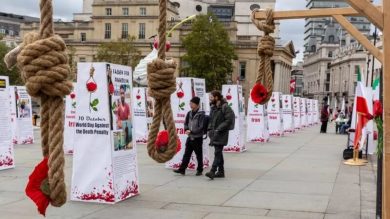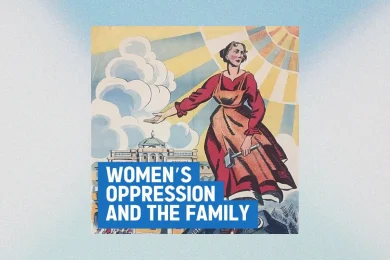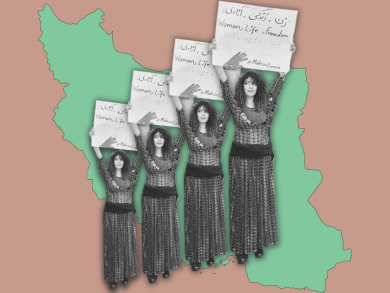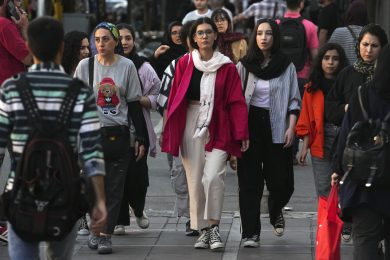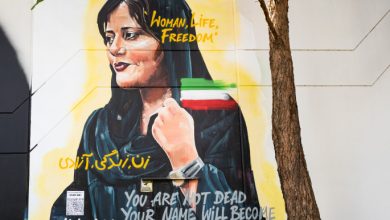As Iranians fight for freedom, justice, and human rights, particularly under the banner of the “Women, Life, Freedom” movement, global solidarity has become a crucial force in supporting their cause. Through international protests, advocacy campaigns, diplomatic efforts, and humanitarian aid, the world has shown a growing commitment to amplifying the voices of Iranian activists and holding the Islamic Revolutionary Guard Corps (IRGC) and the Iranian government accountable for repression and human rights abuses. This article explores the role of global solidarity, the impact of international advocacy, and the challenges and opportunities for further global action to support Iran’s freedom movement.
1. Understanding the Current Freedom Movement in Iran
The death of Mahsa Amini in September 2022 sparked one of the largest protest movements in Iran’s history. While women’s rights, particularly the fight against compulsory hijab laws, were central to the protests, broader demands for political reform, gender equality, and economic justice soon emerged. These protests have been met with brutal repression by the IRGC and other state security forces.
A. Key Issues Driving the Movement
• Gender inequality and state-enforced morality laws
• Economic hardship, corruption, and job insecurity
• Suppression of ethnic minorities (e.g., Kurds, Baloch, and Arabs)
• Systemic human rights violations and political repression
B. The IRGC’s Role in Repression
The IRGC is at the forefront of suppressing dissent, employing tactics such as mass arrests, internet shutdowns, and violent crackdowns on protests. Despite these efforts, activists continue to resist through digital organization, social media, and grassroots mobilization.
2. Global Solidarity in Action
The world has responded to Iran’s freedom movement with support from governments, civil society, and diaspora communities. These actions have raised awareness of the movement’s goals and applied pressure on the Iranian regime.
A. Protests and Rallies Around the World
Following Mahsa Amini’s death, Iranian diaspora communities organized large-scale protests in major cities such as Berlin, London, New York, and Toronto.
• Protesters demanded justice for Mahsa Amini, an end to gender-based oppression, and international sanctions on IRGC officials.
• Solidarity protests attracted diverse participants, demonstrating a global consensus against Iran’s human rights violations.
B. Social Media Campaigns
Social media has played a critical role in raising awareness of the movement, with hashtags such as #WomenLifeFreedom, #MahsaAmini, and #StopIRGC trending globally.
• Videos of protests and eyewitness testimonies have spread rapidly, overcoming the Iranian regime’s efforts to impose internet blackouts.
• Celebrities, activists, and politicians have used their platforms to amplify the voices of Iranian activists.
C. Statements of Support from Global Leaders
World leaders and international organizations have publicly condemned Iran’s crackdown on protesters. The United Nations, European Union, and various human rights organizations have called for:
• Investigations into crimes against humanity committed by Iranian security forces
• Sanctions targeting high-ranking IRGC officials responsible for repression
3. Diplomatic Efforts and Sanctions
Governments have implemented sanctions and diplomatic pressure to hold the Iranian regime accountable for its actions.
A. Sanctions on IRGC Officials
The United States, Canada, and European countries have imposed sanctions on IRGC officials and entities involved in human rights abuses.
• Sanctions have included asset freezes, travel bans, and restrictions on financial transactions.
• Activists have called for the IRGC to be designated as a terrorist organization by more countries to further isolate the regime.
B. Diplomatic Advocacy
International bodies, including the UN Human Rights Council, have passed resolutions urging Iran to:
• Release political prisoners and detainees held during protests
• Respect freedom of expression and peaceful assembly
• Allow independent investigations into state violence
Some governments have recalled their ambassadors or reduced diplomatic ties with Iran as a form of protest.
4. The Role of Human Rights Organizations
Human rights organizations play a key role in documenting violations, advocating for justice, and providing resources to activists.
A. Documenting Human Rights Abuses
Organizations such as Amnesty International, Human Rights Watch, and Iran Human Rights have published detailed reports on:
• Arbitrary arrests, torture, and executions
• Violent crackdowns on protests, including the use of live ammunition and sexual violence against detainees
These reports are used to build international legal cases and pressure governments to take action.
B. Legal and Humanitarian Support
• Human rights groups provide legal representation and asylum assistance to activists fleeing persecution.
• They also offer psychological support for survivors of state violence.
5. The Role of the Iranian Diaspora
The Iranian diaspora is a driving force behind global solidarity efforts. Many activists in exile continue to mobilize protests, raise funds, and advocate for political reform in Iran.
A. Building International Awareness
Diaspora-led organizations work with journalists, lawmakers, and civil society groups to keep Iran’s freedom movement in the global spotlight.
• Media appearances and op-eds by Iranian activists have helped sustain public interest in the cause.
• Diaspora activists frequently engage with human rights committees at the UN and other international forums.
B. Supporting Activists on the Ground
Diaspora communities provide financial and technical support to activists inside Iran, including:
• Digital security training and VPN access to bypass internet censorship
• Funding for medical care and legal defense for arrested protesters
6. Challenges to Global Solidarity
Despite widespread support, global efforts face several challenges:
A. Geopolitical Tensions
• Some countries prioritize economic ties or diplomatic negotiations with Iran, limiting their willingness to impose stronger sanctions.
• Ongoing nuclear negotiations have complicated international efforts to take a unified stance on Iran’s human rights issues.
B. Disinformation and Propaganda
• The Iranian regime spreads disinformation, framing protests as foreign-backed conspiracies and portraying activists as traitors.
• Countering these narratives requires fact-based reporting and media literacy efforts.
C. Sustaining Momentum
• As media attention shifts to other global events, maintaining public awareness and political pressure becomes challenging.
• Activists stress the importance of ongoing advocacy, including educational campaigns and cultural exchanges.
7. Strengthening Global Solidarity
To enhance support for Iran’s freedom movement, the international community can take the following steps:
A. Expand Sanctions and Accountability Measures
• Target more IRGC-linked businesses and financial networks to limit their funding for repression and proxy wars.
• Advocate for UN-led investigations into crimes committed by the Iranian regime.
B. Increase Support for Civil Society
• Fund independent Persian-language media to counter the regime’s propaganda.
• Provide technical support to activists for digital security and safe communication.
C. Amplify Activist Voices
• Partner with diaspora communities to amplify the stories of protesters, journalists, and survivors.
• Encourage schools, universities, and cultural organizations to include Iran’s human rights struggle in their programming.
Conclusion
Global solidarity is a vital force in supporting Iran’s freedom movement. Through protests, advocacy, and diplomatic pressure, the world has shown that it stands with Iranian activists in their fight for justice and human rights
Join Our Newsletter!
Stay informed with the latest updates, news, and ways to take action in the fight for justice and global security. Sign up now to get updates delivered straight to your inbox!

